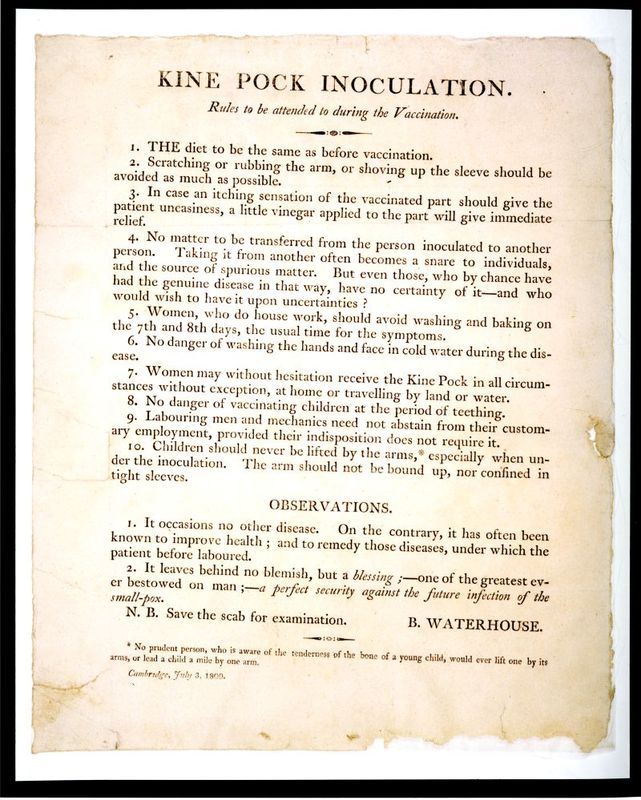Later Career
Through the rest of his life, Benjamin Waterhouse continued to champion Jenner's work and the cause of vaccination, assisting local communities in vaccination programs and campaigning to establish a national vaccination program following the English model. Towards the end of his life, he stated "I attained a triumph so complete that it is now rare to meet an American with marks of small pox on his face... Benefits are valuable according to their duration and extent, like the showers from heaven, but the benign remedy Vaccination saves millions of lives every century, like the blessing of the sun, universal and everlasting."
Benjamin Waterhouse's later career, however, was a tarnished one. He had a brief tenure (1807-1809) as physician at the Marine Hospital at the Navy Yard in Charlestown—a political appointment from Thomas Jefferson, as a reward for his vaccination work—but was dismissed on charges of theft and graft. This dismissal was soon followed by Waterhouse's bitter break with the Harvard Medical School and his forced resignation from the faculty in 1812. From 1813 until 1820, he held the position of medical superintendent of the military stations in New England, and he continued to lecture and publish.
The marker over Waterhouse's grave in Mount Auburn Cemetery in Cambridge pays tribute to his significant contribution to American public health: "In 1800 he introduced to the new world the blessing of vaccination, overcame popular prejudice and distrust by testing it on his own children, and thus established a title to the gratitude of future ages. He died in Cambridge 2 October 1846. This monument is erected by his widow in testimony of his private worth and of his merit as a public benefactor."

